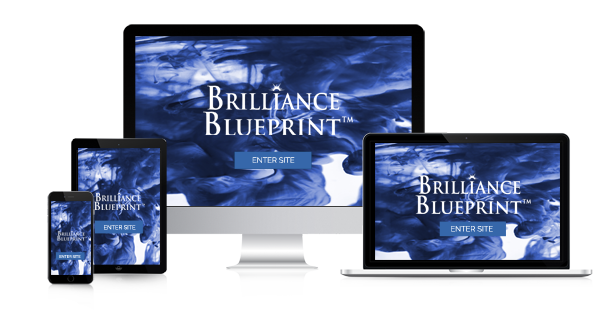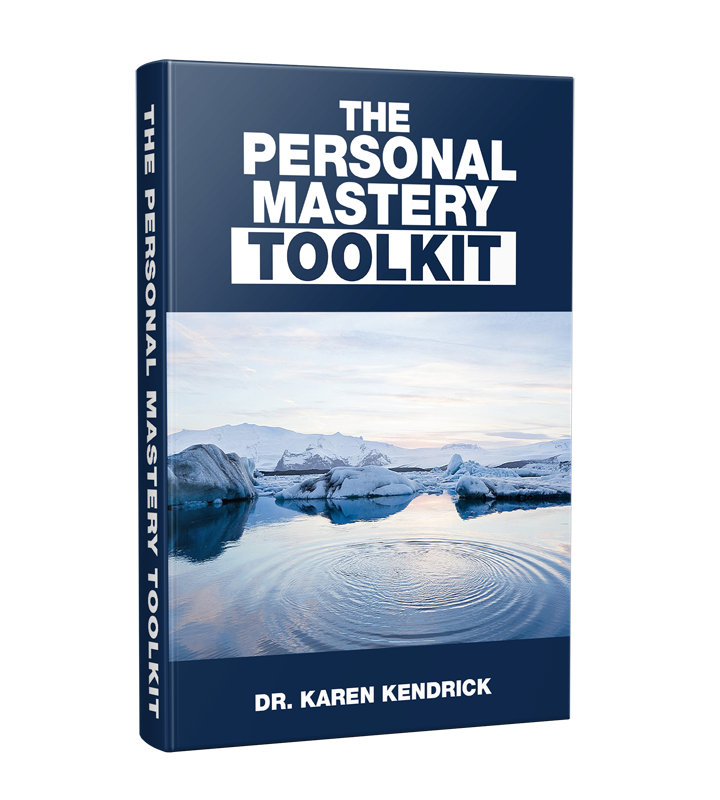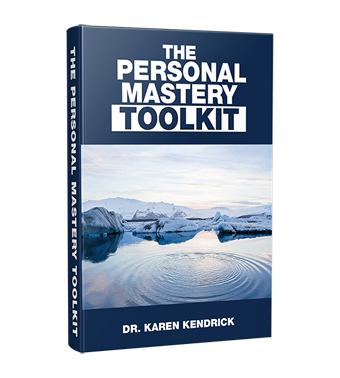7 KEYS TO PACING YOURSELF FOR BETTER PRODUCTIVITY AND BALANCE
ABOUT THE EPISODE
Staying productive and feeling well comes down to how you manage and conserve your energy. Learn 7 keys to pacing yourself to maintain your productivity and wellbeing over the long-term.
TRANSCRIPT
Life in the fast lane may sound fun, but the truth is it’s not sustainable. If you want your life to be consistently productive and healthy, it’s all about figuring out the right pacing.
Hey Everyone, it’s Dr. Karen Kendrick, and welcome back to Mastery Now.
One of the key elements in keeping your productivity up and yourself in balance is to learn the powerful technique of pacing. There’s so many different applications of this technique in our lives that we see all the time. Runners pace themselves as they move along a trail. Professional public speakers pace themselves as they give a keynote speech. And writers pace their story plots for maximum interest and drama.
So I think pacing is such an important concept. It’s something that we really want to master if we’re going to maintain our wellbeing. But I also think that it’s something that many of us, myself included, really struggle to continue to do well so that we avoid burnout.
So, before we dive in and talk about what we can do about pacing, I want to clarify what we really mean by pacing. And what I’m really talking about here is about how you distribute your energy across time. Across your days, your weeks, your months and your years. Alternating between periods of expending energy and conserving energy. And doing it in a way that’s sustainable.
Now, what this looks like can vary a lot from person to person. Some people naturally like to live at a more intense pace, and they’re able to sustain it for a relatively long period of time. Other people may like to live at a less intense pace and work in a more measured way, otherwise they deplete themselves pretty fast.
Now, there’s really no right or wrong answers here, but the key is to work and play in such a way that’s doable over the long-term, so that you’re not always exhausted. Because when we are exhausted, we all know that this can lead to less productivity, more errors or mistakes, bad choices, lower quality work, and so on.
So I want to give you some ideas for how to better pace yourself. Now, keep in mind there’s all kinds of things that we could look at here, from doing a deep dive on your nutrition, or sleep mechanics, or hydration, exercise, mindfulness and so on. But I want to focus specifically here on how you’re actually structuring your time and your actions. So let’s look at seven keys to pacing yourself in that context.
So the first key to pacing yourself is to always know what your priorities are. I think it’s so easy to get bogged down in random details distractions, interruptions, requests and so on. So you’ve got to be super clear on what’s mission critical to do with your time and then contrast that with what’s nice to do or what you should hand off or eliminate.
So I encourage you to be incredibly disciplined in your goal setting and planning, and revisiting these things on a daily, weekly, and monthly basis. So you always know what you should be working on or what you should be delegating or ignoring getting involved in.
Now, I did a whole podcast episode recently on planning, so I’m not going to rehash all that here. But you may want to go back and listen to that to refresh yourself on some best practices for planning because I do think this is so critical to pacing yourself and expending energy on things that are going to be productive for you, rather than what’s going to drain you and not get you good results.
So this is really going to help you be clear on what to say no to and what to say yes to and make those decisions so much easier and less stressful. At the end of the day, it really is about knowing what you’ve got to be working on and then maintaining boundaries so that you can stay focused on what’s important.
Now, the second key to pacing yourself is just to do your hardest work when you have the most energy. Whatever work that you need to do is going to take less time when your brain and body feel at its best. That’s just common sense, right?
So you’ve got to remember that your energy is a finite resource and you’ve got to protect it like gold. This is going to help you avoid spinning your wheels and make fewer mistakes and have better concentration. So you’ve got to know when your peak energy period is and try to channel those projects and strategic work during that period. So for some people this may be first thing in the morning, for others it may be mid morning, or maybe for others it may be later in the evening. And some people I know even do their best work after midnight.
Again, it doesn’t really matter, but it’s just about figuring out what is going to work for you. Just for an example, throughout my career I’ve had to do a lot of writing and preparing of presentations and training materials and consulting proposals. And this requires a lot of concentration and quiet time. So my best time is first thing in the morning. So I do tend to structure my days to do the detailed work that I need to do first thing in the morning.
Now, that being said, I realize that you don’t always have complete control over this. You may wind up having to work during hours that aren’t ideal for you. But to the extent that you can, I would just try to push yourself to think about are there ways that I could somehow move some of my work to do it during those periods that I feel at my best.
The third key is to optimize both your morning and evening routines. Now, these are critical hours in your 24-hour cycle that you’ve got some latitude to improve on. You may not be able to control everything, like what times you may have to be at work or what time your kids need to go to school. But within those constraints, you do typically have at least a little bit of flexibility. So I really want you to look at those time periods closely.
Now, the goals of these two routines are actually a little different, but they’re both equally important. Now, the goal of the morning routine should be to do things that are going to set you up for a successful day and do it as efficiently as possible. Now, this means that ideally, your morning routine makes you feel more motivated and in control rather than feeling frazzled or stressed or behind the eight ball, or requiring you to wake up so much earlier than necessary because your routine takes too long or it’s too complex.
Now, the goal of the evening routine is to set yourself up for both a good night’s sleep so that you get rest and recovered, and you set yourself up for your morning to go well. So for example, there’s been a lot written about sleep hygiene. Going to bed at roughly the same time every night, limiting screen time, having a cool dark room, maybe limiting food and water intake a few hours before bed, and so on. But night routines could also include things like journaling, or putting clothes out for the next day, or doing some light stretching, or whatever helps you wind down and feel prepared for tomorrow.
So what I’m going to encourage you to do is look at exactly what you’re doing during that first one and a half to 2 hours of your day and the last 2 hours of the day to make sure that you’re meeting those goals that I just talked about. With morning routines, you can look at the efficiency of what you do to get out the door, like lunch preparation for your kids, or how you’re styling your hair, and how fast you can get that done, and so on.
But it could also look at what activities that you may want to build in, like exercise, or reviewing your goals, or listening to some upbeat music, or whatever is going to help you feel those emotions that I mentioned of being motivated and more in control of your day.
So it really is a balance of adding things in or taking things out so that you really optimize both of those time periods. So take some time to look at these routines, figure out what’s going to either save you time, help you rest better, or give you more energy and inspiration.

MASTER YOUR GAME
Get world-class training to boost your self-knowledge, success, and fulfillment.
Key number four is to batch process or bundle work that is similar. Most of us have a lot of different tasks, but when you look at them in detail, a lot of them tend to be alike, and yet we tend to do them at different times.
So instead, what I want you to do is think about batch processing these so that your brain gets in the mode of handling these types of tasks all at once. And you’re not going to lose precious time reorienting yourself to the new task that’s put in front of you. This is really going to allow you to have better focus and get in a rhythm with whatever that task is. This is so critical to being efficient and effective.
Now, I think some of the more common ones for most people are things like phone calls or returning texts or handling emails or attending meetings. So I really encourage you to bundle these activities. So for example, do an hour or two of phone calls, then maybe take a break and come back and switch to doing meetings in the afternoon, for example. So maybe you bundle all your errands to do in a single afternoon. Or if you have two doctor appointments, then you have them on the same day relatively close to each other.
So this is really your way to start to amp up your productivity and reduce the amount of time that you’re wasting kind of getting back and reorienting yourself. Now, all of this assumes that the type of work that you do does allow you a fair amount of control over when you do these things. So I get that. But most of the time, if you really look at how your day is structured, you often have more latitude than you really think. So I encourage you to look at this really hard. Think outside the box. Be creative so that you can really improve on how you bundle tasks.
Now, the fifth key to pacing yourself is somewhat similar to the batch processing that we just talked about and that is to simplify, standardize, and automate to the extent that you can. You’ve got to find ways to reduce complexity in terms of what your brain has to attend to and how many things at once that you’re juggling.
So this is about taking a good look at your key processes and decisions as well as your physical environment to reduce the amount of unique or special handling that has to happen, or the amount of digging to find something that you have to do.
So this could be anything from getting rid of desk clutter, to coming up with standard replies to certain types of emails, or coming up with a better file folder categorization scheme so that you spend less time trying to figure out where to put stuff. Or you can find things more quickly. It could also include things like clarifying the criteria for certain decisions that have to be made so that you don’t have a oneoff choice to make every single time. Or maybe it’s using a mobile app to manage your projects or your to do list. Or just find tasks that are not really that value-added that you can get rid of altogether.
So the point is that there are probably things in your life or your work that could use an overhaul. Whether it’s something as simple as your meal preparation process, to your approach to how you get through the holiday season, or how you manage and store documents.
So one exercise that I recommend you do is just to look at what are the top two, to three, to four, or maybe even five things that come up all the time that you could create an automated workflow for. And the best candidates that I find are things that typically tend to drain you the most, or slow you down the most, or that you dread doing the most.
Now, that doesn’t always mean that they wind up being things that you can simplify or standardize or automate, but I definitely would start there. The bottom line with this look hard, dig deep, try to see if there’s anything that you could make better and easier in your life. That’s really going to help you pace yourself.
The sixth key is just to delegate and collaborate. In other words, remember, you don’t have to do it all yourself. I want you to get better at figuring out what you should outsource and share responsibility for. I think it’s so easy to take on more than you should, and many times it’s not serving you well to keep the task on your own plate.
So this could be as simple as deciding to become part of your kid’s car pool, where you rotate drivers, or maybe agreeing to get someone to cut your lawn for you to give you back some more time in your week. Or maybe it’s getting help from a co-worker on a project when you’re stuck rather than spinning your wheels and trying to figure something out on your own. So the point is, you’ve got to be vigilant to when you’re juggling too much or not utilizing others to the extent possible.
Now, if you’re somebody that worries about giving up a degree of control when you do that, I get that. Sometimes it’s hard to let go of that need to feel like you’re on top of everything. And if you’re used to doing it yourself all the time, it may be hard to let go.
But just remember that the most successful people have learned to balance that need for control with the need to best manage their time and pace their energy. So the sooner you can shift your mindset to being one of being efficient, you’ll be more likely to be able to get more done and not burn yourself out doing it.
So that brings us to the last key to pacing yourself, which is to optimize your time off. You’ve got to be intentional with how you rest and how you recharge. Whether it’s through scheduled vacations, or blocks of weekends with no social commitments, or date night with your spouse, or whatever. Just remember that what gets scheduled gets done. So you’ve got to build that in and make it part of your week, or your months, and your years if you’re going to sustain yourself.
Now, I also think it’s important to match your time off to your biggest needs, because our needs change all the time. Sometimes we need things that are more physical. Sometimes we have emotional needs. Sometimes we have mental needs. Or even spiritual needs. Or sometimes a combination. So think about what is it that’s going to provide you the most renewal and relief based on what your need is.
So for example, if you need more physical rest, then make bedtime your priority or take a nap or whatever. If you need a break from being around other people, don’t overbook yourself with social commitments for your entire weekend. You’ve got to protect your energy.
So just think about that. Think about what is it that you really need so that not only are you scheduling things on a regular basis that are going to fill you back up, but you’re also going to need to figure out on the fly, when things come up, what’s going to renew you in the best way. So that you again match that renewal activity with what need that you really need to meet. Whether it’s the need for rest, or the need for being more motivated and inspired by spending time with your kids, or listening to good music, or whatever. So match your need with the activity and that’s going to help you best be able to renew and recharge.
So I hope this has been useful in giving you some strategies for keeping that balance of expending and conserving energy, so that you can maintain your health and wellbeing. Just remember, life is a marathon, not a sprint. And so it’s up to you to pace yourself along the journey

Get a FREE copy of The Personal Mastery Toolkit!
Raise your game and lead an exceptional life.
IF YOU LIKED THIS CONTENT, CHECK OUT:
5 KEYS TO HONING YOUR PLAY SKILLS
NEW TO KAREN?



